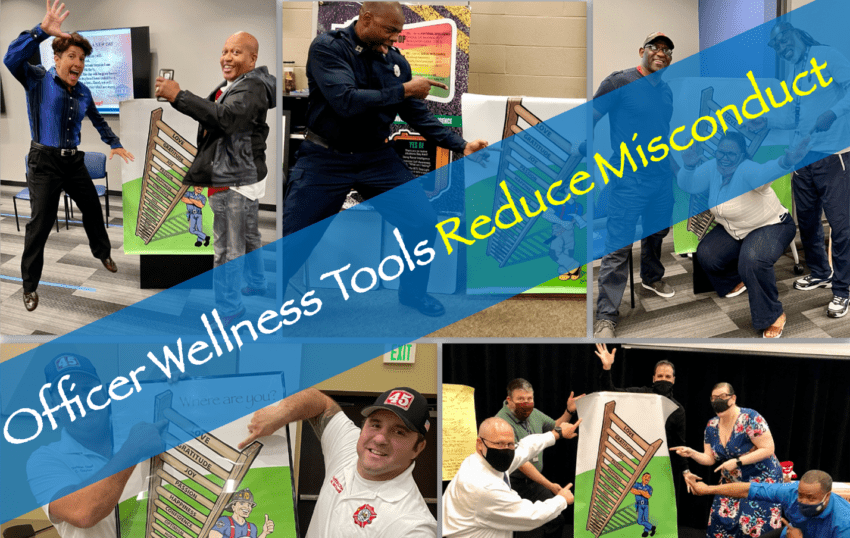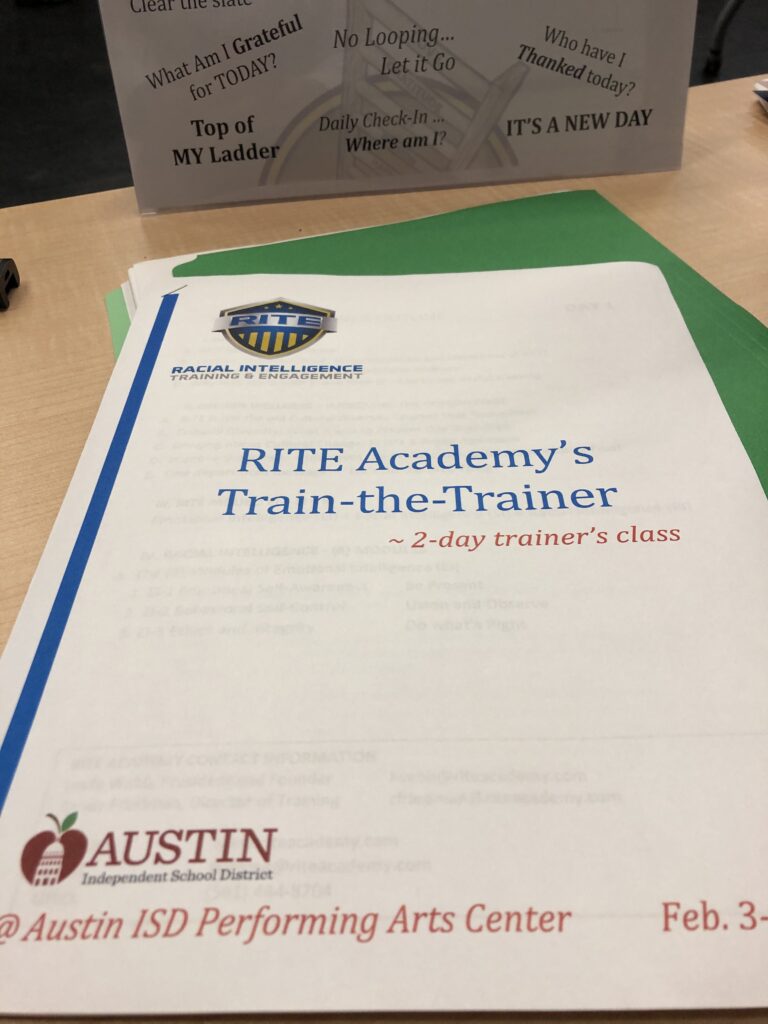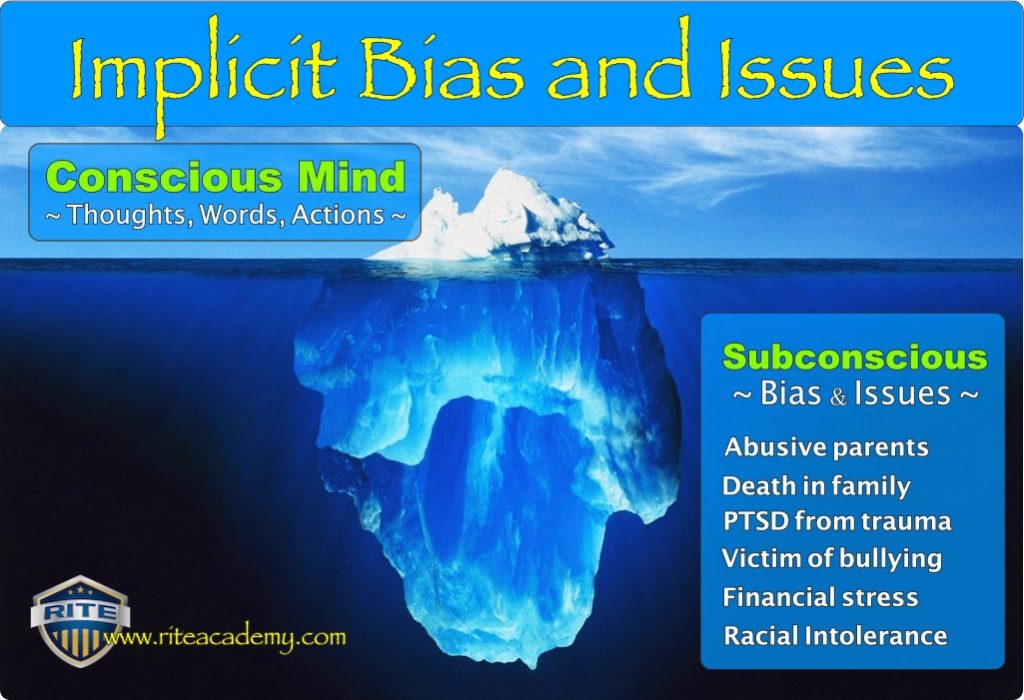Do you remember your first day on the job?
Like most, you couldn’t wait to get out of the academy and on to the actual job.
After years of public service, witnessing traumatic events (most will never see), Cumulative Career Trauma can set in. These long-term effects of PTSD may lead to substance abuse, aggression, and suicide. Over 15 percent of officers in the U.S. experience PTSD.
Bringing awareness of PTSD, CCTS, and officer wellness is the key to a long, healthy career in public service. But, not everyone knows they need help, or knows how to ask for it. Since 2015, RITE Classes have been taught to over 1200 public service agencies the concepts of Emotional Intelligence to improve Officer Well-being. Start somewhere.
Glass Half-Empty
Mental stress of the job can bring anyone to their knees. Your glass goes from mostly full, to half-empty, and for some… glass EMPTY. Thoughts of, “I’m not okay” creep in, yet you don’t know why, and you don’t know how to get help.
Your glass is EMPTY, and you may be thinking it’s time to leave the profession, jump to another agency, or even something drastic like self-destruction.
Left unchecked, you could be a ‘ticking-time bomb’ inside the agency, where you take it out on your co-workers or the community that you serve.
4 Stages of Cumulative Career Trauma
Stage One: First-year excitement
You passed the academy, you’re sworn in, and you are pursuing your dream job. You passed field training and are cut lose.
Can’t wait for the recruits, so you are no longer called ‘the rookie.‘
Stage Two: Mental hardening
After many years of recurring traumatic calls (most will never witness), you are getting mentally hardened and cynical. You can’t share your stories with anyone but co-workers.
Cover up repeating images in your brain, by telling others, “I’m fine.”
Stage Three: ‘Suck it up Buttercup’
As time passes you spend more time listening to toxic co-workers. You can feel something isn’t right, and you are changing for the worse.
The seasoned supervisor tells you, “Suck it up Buttercup, deal with it!”
Stage Four: Breaking Point
You reach your ‘Breaking Point’, Cumulative Career Trauma sets in.
- You become the angry toxic employee
- Turn to addictions like alcohol, drugs, and emotional eating
- You push people away like family and coworkers
- You’re a ticking time-Bomb, making mistakes
- Self-destruction mode where you don’t see end in sight
“Awareness of potential trauma, is the first step towards strengthening any mental wellness program.” ~ Linda Webb
Emotional Intelligence and Officer Wellness training works:
- Learning to VALUE yourself and understanding your own emotions.
- Care about others starts with caring about you first.
- Empathy leaves an impression inside the agency and out in the community. Empathy says “I care how you feel, and I am here for you”.
The benefits of Leaders gaining Emotional Intelligence:
- Retention of Employees
- Reduction of Misconduct and Complaints
- Reinforce a Professional Workplace
- Peer Support, Crisis Intervention, and Mental Health Advocates
- Mental Wellness – PTSD, Career Cumulative Trauma Awareness
When Career Cumulative Trauma is left unchecked, it will lead to increased misconduct, lawsuits, and/or the loss of life (employee and/or community member), community distrust, and demoralizing of the agency as whole.
Since 2015, RITE Academy is proud to have trained over 970 trainers across the United States. RITE teaches trainers on how to recognize the signs of PTS(D) and Cumulative Career Trauma. Mental Health Wellness is key to employee retention and a long-last career in public service.
In memory of our beloved RITE Trainer, Major Trill of Tarpon Springs Police Department, Florida

Major Trill took the RITE Train-the-Trainer Class in 2016. After the completion of class, he talked about how the RITE Program changed his life, and how it would be great for his agency.
Here is the letter he sent us, thanking RITE for how it’s making a difference in his life.
As a SWAT Commander, Father, and Career Law Enforcement Professional he exemplified the RITE principles of knowing first-hand the importance of mental health awareness in public service.

Major Trill dedicated his life to helping employees inside his agency become healthier, and stronger mentally. As a RITE Trainer, he helped build employee VALUE inside the agency, while providing better service to the community.
On Behalf of all the RITE Trainers, Major Trill exemplified the RITE Values and we will always be appreciative for his amazing work in public service.
In 2016, Trill spoke on camera (below), just after he was certified as a RITE Trainer. We will continue to share this video in class as we’ve always done, to keep his words and memory alive. RIP Sir.
He said, “If it works on me, pretty much any police officer can use it.”
TARPON SPRINGS — The city of Tarpon Springs is mourning the loss of Maj. Michael Trill who was found dead in his home on Saturday, July 15. He was 53. Trill, a 27-year TSPD veteran, was larger than life in size, stature, and personality, and was well-known all over town. His sudden death has sent shockwaves through Pinellas County’s northernmost community.




1 thought on “Ignored PTSD and Career Trauma leads to Officer Misconduct”